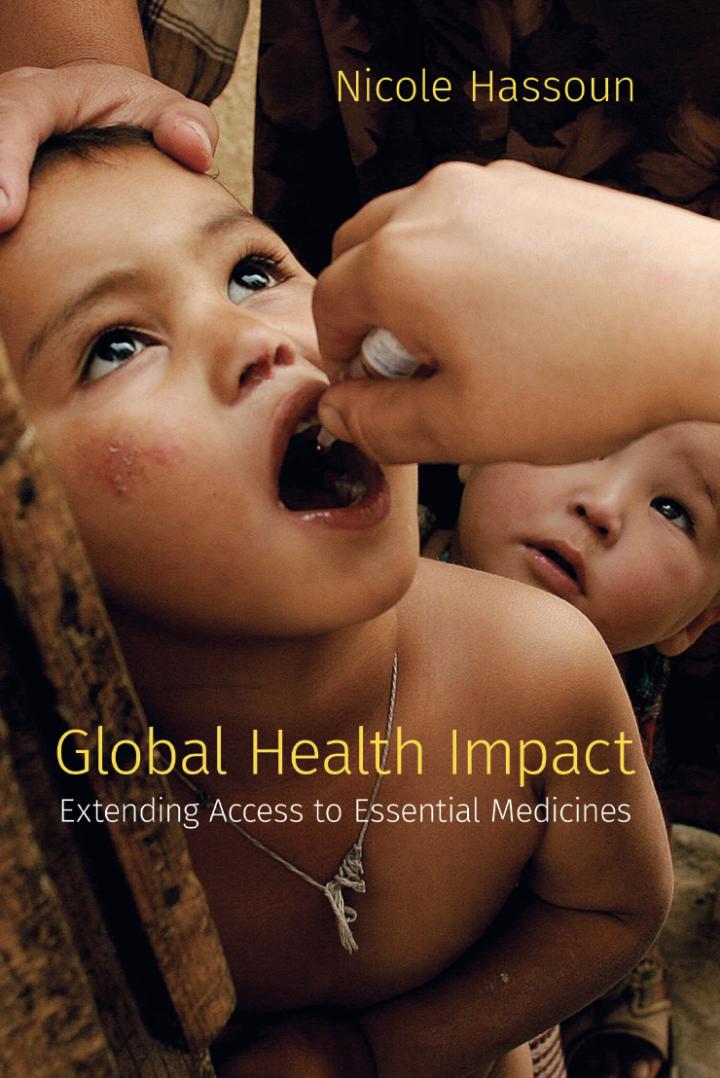
IMAGE: In her new book, Global Health Impact: Extending Access to Essential Medicines, Nicole Hassoun argues that people have a right to access essential medicines and proposes some new Global Health…
view more
Credit: Oxford University Press
Every human being has the right to health and new initiatives should be put in place to encourage pharmaceutical companies to ensure that everyone has access to essential medicine, according to a new book from Nicole Hassoun, professor of philosophy at Binghamton University, State University of New York.
In her new book, Global Health Impact: Extending Access to Essential Medicines, Hassoun argues that people have a right to access essential medicines and proposes some new Global Health Impact labeling, investment and licensing strategies that encourage pharmaceutical companies to improve global health.
“The idea is to rate these companies based on their medicines’ impacts. Highly rated companies will get a Global Health Impact label to use on their products,” said Hassoun. “Socially responsible investment companies and universities might also take the ratings into account in making investment or licensing decisions.”
After arguing that people do have a right to access essential medicines, the book explores this proposal, its philosophical justification and its prospects for success.
Global Health Impact: Extending Access to Essential Medicines has three parts. The first part makes the case for a human right to health and to access essential medicines, in particular. It defends the argument against recent criticism of these proposed rights. The second part develops the Global Health Impact proposal. The final part makes the case for consuming things with Global Health Impact and similar ethical labels and considers what kind of empirical evidence supports the proposal.
“Many people in low-income countries cannot afford many life-saving medicines. Pharmaceutical companies focus their R&D efforts on the most lucrative products, like allergy medicines, that treat chronic conditions for affluent people; not medicines for the greatest global health problems that cripple, and end, millions of lives prematurely every year,” said Hassoun. “So there are no good vaccines against diseases like TB. Moreover, when existing drugs for these diseases become obsolete due to rising resistance rates (made worse by the fact that many poor people cannot afford first-line drugs), there are often no new, effective treatments available.”
Hassoun has been pushing to use data to promote global health through the Global Health Impact Index. The index looks at three things: the need for several important drugs for tuberculosis, HIV/AIDS, malaria and multiple neglected tropical diseases; the drugs’ effectiveness; and the number of people who can access these drugs. Each company’s score is the sum of its drugs’ impacts. It was first launched at the World Health Organization in Geneva in 2015. Like companies who are able to brand their products with a Fair Trade label, Hassoun hopes that a similar rating system for pharmaceutical companies will encourage these businesses to improve their practices and make their products more widely accessible.
The book, published by Oxford University Press, is available July 17.
###
TDnews














